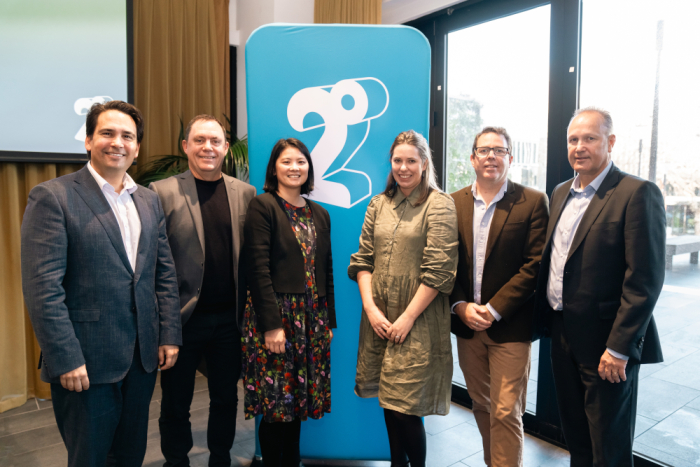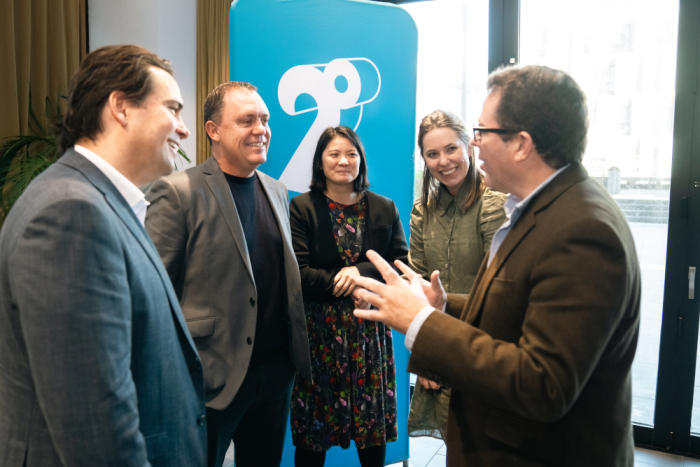2degrees study: many companies failing to leverage technology.
New Zealand urgently needs to address a shortage of digital skills in its workforce if the country is to reach its potential, a senior business leader believes.
Andrew Fairgray, Chief Business Officer at 2degrees, says the company’s just-released 2024 Shaping Business Study shows almost a quarter (23 per cent) of those businesses surveyed say they lack the digital skills necessary to help them get ahead.
“This is up on the 19 per cent who felt this way in 2023,” he says. “On top of that, 22 per cent cited the lack of highly skilled people as the biggest barrier to driving increased productivity (although 46 per cent also said the availability of these people was the biggest driver to productivity), so it is obvious we have a lot of work to do.”
Although technology issues are among the key findings, the study also shows that business optimism is slightly up on last year – 34 per cent compared to 32 per cent – and Fairgray says this gives him hope.
“I am a glass half-full person and believe New Zealand is a fantastic country to live in and ought to be able to attract people with the skills we need. There is no reason why we cannot leverage technology as well as companies around the world do and take advantage of opportunities open to us.”
The study sought the views of 704 business decision-makers ranging from small businesses to larger corporates. It was conducted on behalf of 2degrees by research agency Perceptive who spoke to business owners, CEOs, directors, general managers and others in C-Suite roles.
Fairgray says while many companies are not well positioned to take advantage of technology, this is more so for smaller businesses: “Larger organisations tend to use technology more efficiently because they have the time and the space to train people. If you are time-poor, and are operating in a cost-challenged environment, prioritising learning is more difficult.
“This is reflected in the study where 34 per cent of respondents cited lack of time as being the primary obstacle to acquiring these (technology) skills.

“For many local businesses too, the New Zealand way has tended to look at bringing on an extra person rather than driving technology. But there is only a limited number of hours you can get out of that person in a day.”
He says another factor is the number of people in the 25-35 age-group who, having developed digital skills, are heading overseas either for jobs or their OE.
“These people lived through Covid and were held back from travelling during that period, but are now wanting to go,” Fairgray says. “At 2degrees we have over 450 in our IT team and are finding many are leaving for overseas. We might have thought Covid was over but, in a business sense, it has a very long tail.
“Conversely, as a country, we are not attracting enough in this age-group back. But we have a great environment to live in here and, if we can improve factors such as salary levels, I am sure we can start to overcome this issue.”

The study shows that 63 per cent of businesses plan on investing in better use of technology in the next 12 months – 25 per cent of these into digital upskilling and 25 per cent in artificial intelligence (AI), while 52 per cent intend to invest in automating their processes.
“Effective use of technology continues to correlate strongly with overall business performance – with the study showing that 68 per cent of ‘thriving’ businesses say digital technology improves productivity compared to just 50 per cent of ‘surviving’ businesses.”
However, Fairgray says technology decisions need to be based on the right outcomes -- and not employing tech for the sake of tech: “Artificial intelligence is another great tool, but if you're not clear on what you're trying to achieve, AI won't help you, it will potentially get you into a knot.
“If you have a spade and stand next to someone who is really good with a spade, they can create probably five to six holes for posts in the time it takes you and I to create one. If you use that analogy for AI, that business will probably get five times ahead if someone knows how to use it properly and they're really clear on the outcome they're pursuing.”

Fairgray says it is imperative support structures and resources are put in place to help. “Businesses need access to resources and the case studies of those successfully driving technology – and where to get this help.”
One initiative 2degrees has launched is its Digital Accelerator, a programme designed to unlock business digital potential. Successful applicants receive an in-depth business assessment with New Zealand-based software company Smudge, a 12-month Chamber of Commerce membership and $50,000 towards a bespoke digital and technology package.
Inaugural winners are Wellington-based flooring specialist James Henry and Twizel aquaculture operator High Country Salmon.
Fairgray says 2degrees has also joined a number of companies in an Auckland Business Chamber-sponsored initiative which has identified three sectors – CreativeTech, FinTech and HealthTech – where Auckland is well-suited to become a global technology hub and is calling on central and local government and other Auckland businesses to support the idea.
“Each of these sectors has strong international growth potential and Auckland has a set of unique attributes which means it is logical to concentrate efforts in the city as the hub.” he says. “Equally there are other cities in New Zealand that allow them to take leadership roles in the creation of other technology hubs.”
Fairgray says AI is also increasingly seen as an opportunity. The study shows 48 per cent of those surveyed see it as the next step in increasing productivity, up from 35 per cent a year ago.
Full report Register to receive the 2024 Shaping Business Study here.






